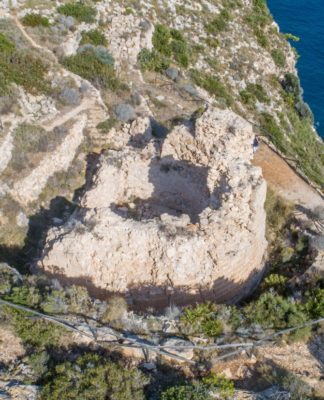Valencia regional government has insisted that its new legislation will not allow hotels to be built within 200 metres from the coast.
The decree law for administrative simplification, which was approved on Tuesday, is ostensibly designed to improve efficiency, efficacy and transparency, and to speed up bureaucratic procedures by eliminating or modifying numerous other laws, decrees, orders and articles.
But the regional Socialist (PSOE) and Compromís opposition parties have claimed the decree law ‘disguises’ a reduction of how close to the shore it is permitted to construct, which is currently 500 metres under the previous regional government’s still valid coast protection plan (PATIVEL).
They accused the Partido Popular (PP)-Vox coalition of not waiting for the approval of its upcoming new regional coast law to relax protection of the coast against ‘predatory’ urban development.
The regional secretary for presidency, Cayetano García responded by assuring that 200 metres is the minimum distance from the shore for hotels to be constructed, and that only removable constructions (such as beach clubs or bars) are permitted between 100 and 200.
He said the simplification law and the draft of the regional coast law comply with the national coast law because they respect the state’s access to the coasts and do not change or authorise any activity or construction that infringes state powers.
Nevertheless, the NGO Ecologístas en Acción has presented a dozen objections to the draft regional coast law, claiming that it will ‘open the door to speculation’, allowing construction within 500m of the shore, urban development in areas earmarked for environmental improvement, and ‘generic expropriations to make way for plans and projects’.
Some proposals exceed regional powers while other contradict Valencian, state and European Community legislation, the ecologists claim.
The only real justification for the law is to prioritise economic aspects which are not always related to the coast (such as tourism, retail and hospitality) or which are residual, such as fishing, they allege.
“We think the law is not really concerned with the general interest but with protecting supposed ‘traditional coastal urban centres with ethnological value’, by permitting special plans to legalise those on public domain maritime-terrestrial land (DPMT) and legalise rural settlements on land where building is prohibited, including completely illegal buildings,” the NGO asserts.
Power to grant authorisations and concessions on DPMT has not been awarded to the regional authority and therefore corresponds to the state, when the national coast law expressly prohibits buildings for residency or habitation along the coast or on DPMT.
As such, the draft law seems designed to facilitate urban development of well-conserved coastal spaces and does not even require environmental evaluation of projects, plans and programmes on the coast, they say.
The document’s contradictions with the PATIVEL include: reducing the prohibition of residential land from1,000m to 500m from the shore; allowing campsites and service buildings within 100m; allowing hotels within the first 200m of land where building is prohibited; and promoting urban developments in areas with ‘special environmental and landscape conditions’, thereby degrading well conserved areas within 500m of the seashore.
Moreover, the EU’s recent regulation on restoration of nature aims to prioritise Natura 2000 network spaces and sets targets to restore 30% of degraded spaces by 2030 and 90% of all habitats in 2050, which ‘clashes head-on’ with the idea of encouraging new buildings on undeveloped coasts.
Lastly, the ecologists oppose the idea of a ‘declaration of public utility’, which enables private assets to be expropriated in a generic manner when they are needed to increase ‘public regional patrimony of coast land derived from plans and projects’.






























